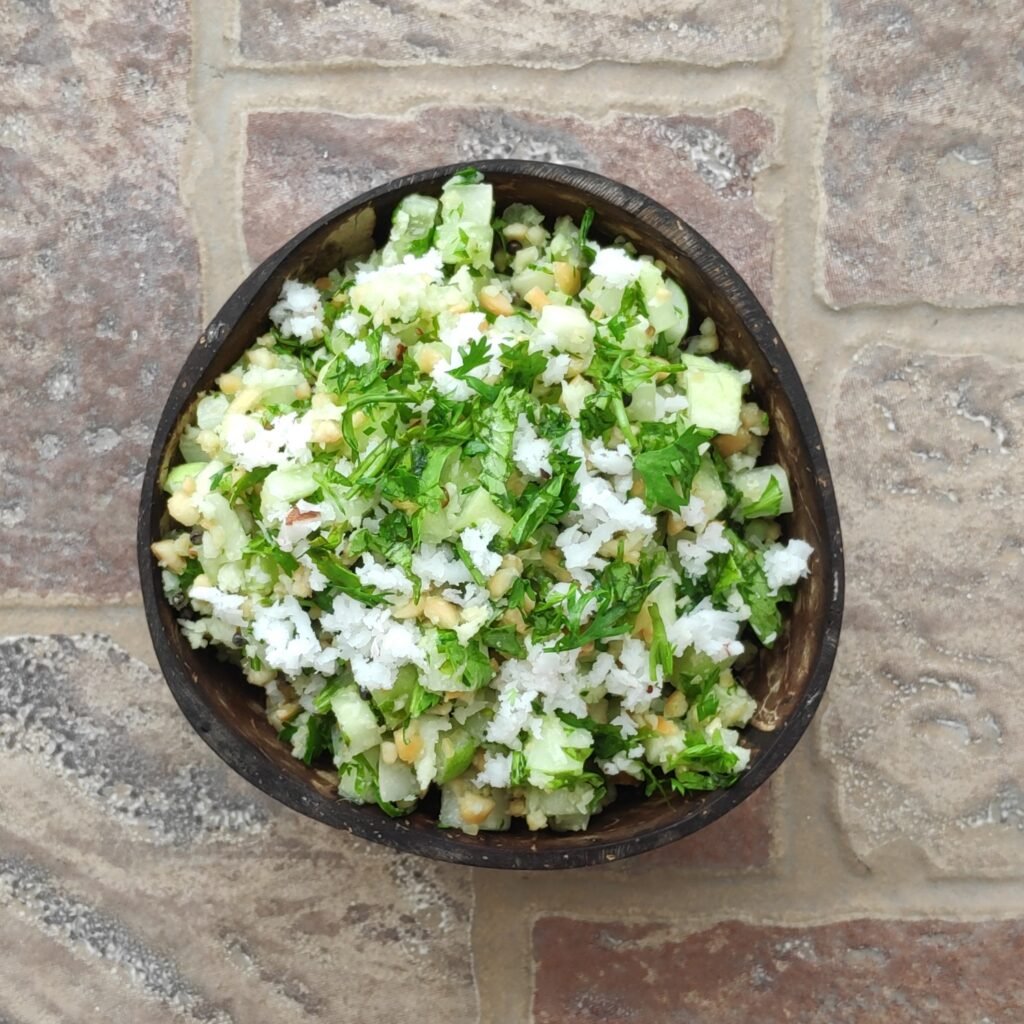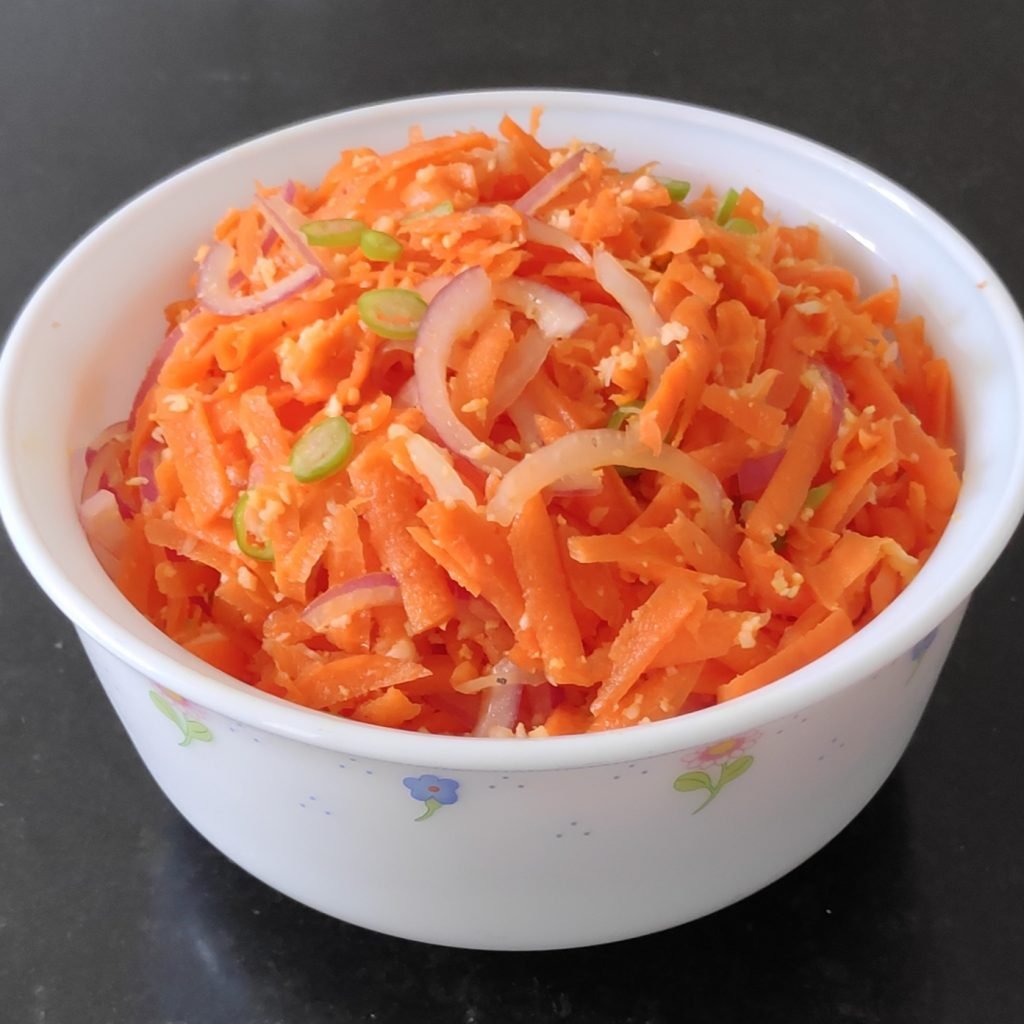
Khamang Kakdi (Cucumber Peanut Salad)
Cucumbers are a great fruit to keep you hydrated because they are 95% water. So ‘eating’ your water is a great way to keep that thirst away. They are low in calories and rich in fiber so aid in digestion and help you stay regular and avoid constipation. The phytonutrients (plant chemicals) in cucumbers that are called lignans may help prevent osteoporosis, heart disease, and some cancers. The antioxidants such as beta carotene in cucumbers can help fight free radicals in your body, unpaired electrons that damage cells and generally lead to disease. They have small amounts of vitamin K and vitamin A that help blood clot and keep your bones healthy respectively. Vitamin A also enhances the function of vision, the immune system, and reproduction. It also makes sure organs like your heart, lungs, and kidneys work the way they should.


